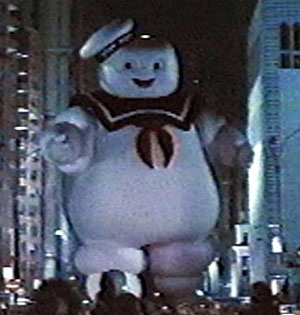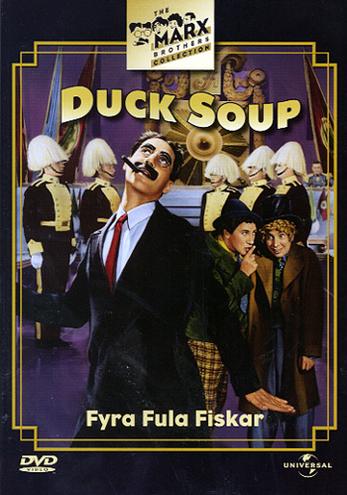Slate’s Movie Club Analyzes 2008
Posted on January 12, 2009 at 4:00 pm
Every January Slate Magazine asks some of the country’s top critics to have an exchange of emails about the year in film and reading it is like sitting in on a terrificly well-informed, lively, thoughtful, and provocative conversation about what we’ve seen and what it all means. I like seeing these critics transcend the reviews of individual films and look back on everything they have seen to provide some context and contrast. This year, for the first time the group is all-female and I think that adds an extra level of candor and some new topics to the debate. They talk about what made them cry and laugh, about the way parenthood and the decision to terminate a pregnancy are portrayed on screen, about the different ways readers respond to women critics and how all of us bring what we are to what we watch, and about the effects of plastic surgery on actresses. They had very mixed feelings about the year’s biggest hit, “The Dark Knight,” lukewarm admiration for much of the winter-season “earnest snooze” Oscar-bait, and some surprising affection for “The House Bunny” and “Ghost Town.” I was also glad to see how moved they were by the wonderful documentary “Young @ Heart” but surprised — and unpersuaded — by some support for “Step Brothers.” The conversation is well worth reading in its entirety, but here are some of the comments I found most illuminating and fascinating:
Reluctant as I am to suggest that gender guarantees anything when it comes to opinion, I do believe that a greater number of female voices would add more to the debate than a deeper appreciation of the work of Jane Campion and Sofia Coppola. (The under-representation of African-American, Asian-American, and Latin American voices is a whole other movie club.) At the very least, screenwriters might hear our exhaustion with lame slacker comedies and so-called romances that encourage us to welcome the attentions (and incubate the sperm) of socially maladjusted busboys. Or with “chick flicks” that speak to us solely in the language of consumption. (“SATC” and “The Women,” I’m looking at you.) Or with the endless parade of superheroes, differing only in costume and sidekick and comic-book provenance, making the world safe for … more superheroes.
Don’t get me wrong: My brain is permanently branded with some of Christopher Nolan’s vivid imagery (that trip-wired 18-wheeler!), but The Dark Knight left me more stunned than admiring. Nolan may be making a sincere attempt to confront the ethics of vigilantism and the seductiveness of disorder, but he’s constantly undermined by a baffling screenplay (just because a movie’s theme is chaos doesn’t mean the storytelling has to comply) and a vision that draws all of its energy from death. And am I the only person to notice that Christian Bale has less personality than the Batbike? His terminally constipated crusader made me yearn for Michael Keaton’s superlative spell in the suit a decade ago: Being sexy while wearing a pointy-eared balaclava is a lot harder than it looks.
Jeannette Catsoulis of the New York Times, Reverse Shot, and Las Vegas CityLife
owns every crease in that monument of a face, and his great strength as a performer, especially as he ages, has been to understand and inhabit that monumentality with an ironic intelligence that, in this year’s Gran Torino, comes close to imploding the Eastwood myth from within.
Dana Stevens of Slate
I know that when I analyze something intended for women, I reflexively filter what I’m seeing through a kind of primal female truth-ometer, and then I decide whether to make use of my findings or toss them aside. (And, see, this is where I completely get Jeannette’s intense response to “Revolutionary Road,” although it’s not a response I share; I was definitely among those peering through thick Plexiglass and admiring the home furnishings. By the way, read Judith Warner’s really excellent New York Times piece about “The Lure of Opulent Desolation.”) I mean, it’s not that a story can’t be a wild and crazy fantasy–but neither can I, a girl of my gender, put up with a crass, clueless pantomime like, say, Diane English’s wrongheaded remake of “The Women.” Similarly, when I consider something obviously intended primarily for men (I mean specifically boy-men, a la Apatow, Farrelly, and related Jackass-iana), I’m aware of my minority place in the audience.
Lisa Schwarzbaum, movie critic at Entertainment Weekly


